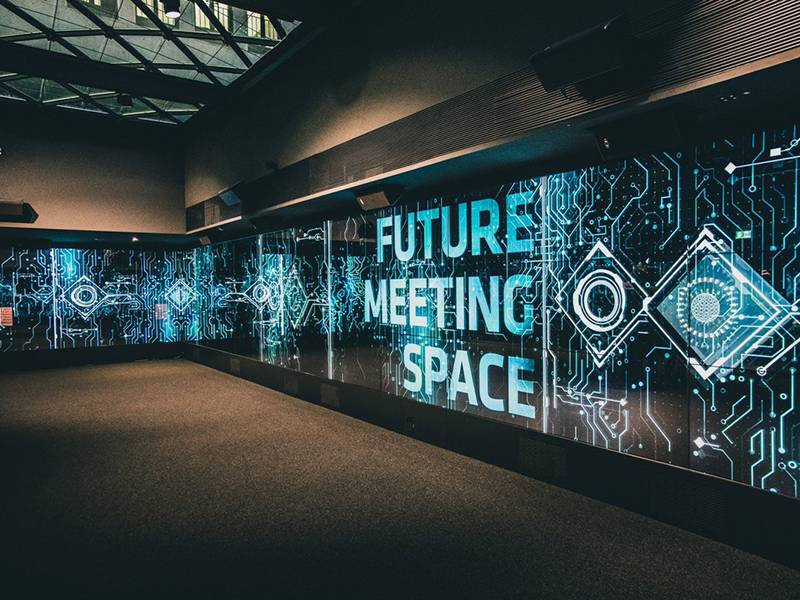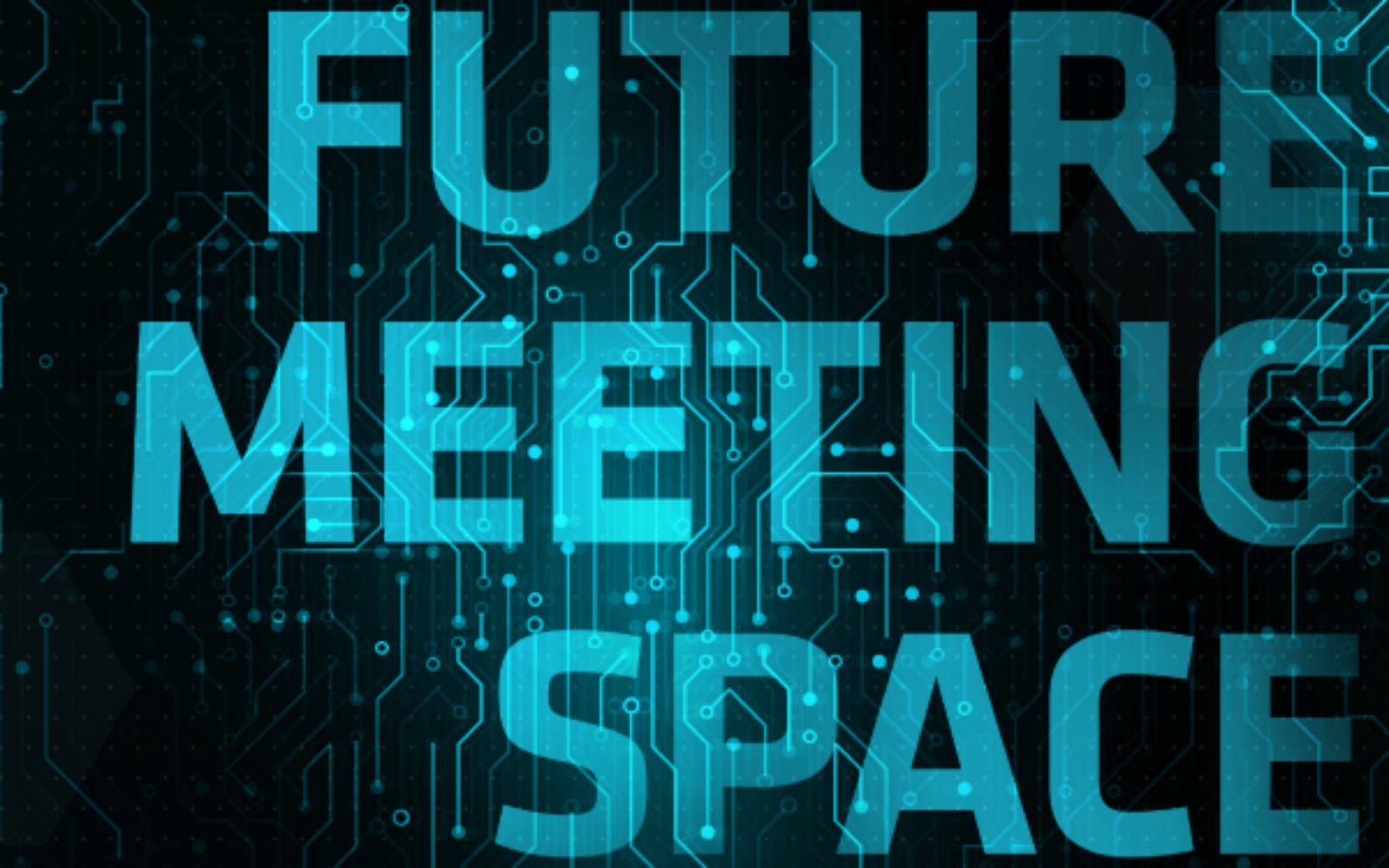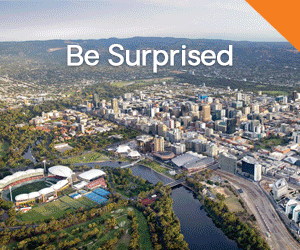Future Meeting Space: “The Pandemic Illustrates the Fragility of Established Systems”

The challenges of a post-pandemic era are immense and reflect a new event ecosystem that is underpinning a set of emerging trends. Bearing that in mind, the GCB German Convention Bureau, together with the Fraunhofer Institute for Industrial Engineering IAO, conceived an innovation project that aims to outline the future of business events and its active role in the global strategy of the MICE landscape. How important will they be for organisations' communication in the future? What kind of new skills will be needed? What criteria can be used to measure the success of events? It is these and other questions that Future Meeting Space (FMS) tries to answer, here voiced by Matthias Schultze (pictured here), managing director of the GCB.
1) Before going into too much detail, how did you come up with the idea to create this event innovation network?
Our world is becoming more complex and is changing dynamically, that’s why it became more and more important for us to be ahead of things that might come. So, we came up with the idea of cooperating with the Fraunhofer Institute for Industrial Engineering IAO to jointly create the FMS innovation network as early as 2015. The Fraunhofer IAO is part of Fraunhofer Society Europe’s largest application- oriented research organisation and thus the perfect partner for a research project like FMS. The project aims at developing ideas, concepts and practical advice for the continuous development of the German (business) event industry. It provides an important building block to secure the country’s future competitiveness and market position as a leading meetings and conference destination, by enabling innovation leadership. The FMS research focusses on trends, innovations and technological and social developments, identifying their possible influence on the event industry, trying to find out how future events should be designed, and how participants’ needs develop as well as the requirements that result from these aspects for all those involved in the event planning process.
2) One of the main conclusions of this research highlights that the relevance of events to the communications mix of organisations will continue to grow. How so?
The relevance of events will continue to grow, because they are an essential part of the communications mix of organisations. With rising digital and virtual forms of communication, it becomes more important to create real and genuine experiences. For strengthening a brand or enabling identification with a company, spontaneous, physical encounters which can create surprising moments, networking activities and emotional experiences become more and more relevant. If they are well staged, they promote the loyalty and identification of customers with a brand − that’s why business events will remain an important marketing instrument for the communication toolbox of meeting planners and organisers. The results of the FMS research have shown that events cannot and probably will never be solely replicated in the virtual space. They change in design and format with more hybrid aspects and building global communities through social media, but still require personal, emotional and physical interaction. Another change is that events will no longer take place on a fixed date alone, but will circulate in a kind of event loop.
“According to the results of the Meeting- & EventBarometer, 83% of event planners choose the destinations for their events based on topics."
3) It is also clear that the effectiveness and relevance of these future events will be determined by new smart city concepts. Could we be watching a new stepping stone for knowledge transfer and capacity building in the destination selection process?
The transfer of knowledge between event planners and a destinations’ intellectual and innovation resources has become an important way to offer better value to every participant. According to the results of the Meeting- & EventBarometer, 83% of event planners choose the destinations for their events based on topics. Whether it’s about medicine, health, sustainability or economy – authentic and real places representing a specific issue are gaining more importance in an increasingly digital world.

4) The references to explicit and implicit (or tacit) knowledge and the contrast between the interaction and networking methods that result from it, are quite noticeable throughout your research process. Coming from a critical period in which the explicit model of knowledge was king, do you believe now in a balance between these two elements?
Know-how comes in different shapes and forms. Expanding knowledge is not only about sitting in an audience and listening to a speaker, implicit knowledge is the information, experiences and values that we carry around within us. It is below the surface, “invisible” and more difficult to share. Depending on the format of an event, the balance between the explicit transfer of knowledge and the implicit transfer of knowledge varies a lot. The “visible”, explicit knowledge is well documented and can be shared easily and be imparted in digital formats. But it’s time to implement new, innovative and creative concepts that focus on personal interaction and to reduce the amount of explicit knowledge, because the “invisible” is what might lead to new ideas and innovative solutions.
5) FMS came out strategically with six different scenarios and a “Future Meeting Room” in order to meet the needs of future participants and serve as an eco-chamber for new realities. Tell us more about these event scenarios and the meeting room.
In the future, a variety of different event types will take place and be in demand. Therefore, we have identified six scenarios: the interactive forum scenario, the multi-site congress scenario, the co-working congress scenario, the analogue congress scenario, the hybrid congress scenario and the virtual goes real scenario. Each scenario has different requirements with regard to the event location, number of participants, timetable, transfer of knowledge and infrastructure. The “Future Meeting Room” combines different scenarios and covers participant needs and requirements that will arise in the future.
"The participation in virtual events will decrease soon, whereas the proportion of physical events with more hybrid aspects will rise."
6) This global standstill led to drastic consequences in the market which were not only due to changes in economic structures and turnover, but also towards more exible working models. According to pre-COVID trends, do you consider that the pandemic was a trigger for a faster transition?
The pandemic illustrates the fragility of established systems, but it also shows how a change in circumstances can lead to quantum leaps in many areas. Pre-COVID trends already went towards more digital tools, virtual and hybrid event formats, as well as virtual interaction and collaboration, but the COVID-19 pandemic turned out to be an accelerator for digitalisation and hybridisation, inspiring a wide range of new solutions. The increased wish for personal meetings is still there and will soon bring back face-to-face events, even though in different, more hybrid formats. The results of this year’s Meeting & EventBarometer have also shown that only about 20% of event planners expect to schedule the way they did before the pandemic. The participation in virtual events will decrease soon, whereas the proportion of physical events with more hybrid aspects will rise. 61% of event planners expect a lower travel volume in the future and thus a higher number of smaller and more regional events. This has reinforced the importance of anticipating future developments in the events sector. Future scenarios as we had described them in previous research phases became reality. The Covid-19 pandemic brings about a kind of “fast forward” to the future. It is now clear that the event ecosystem will change considerably and for the long term. Customer and participant needs are now more than ever the key to success.
7) Finally, given the new role and purpose of business events, new platforms and groundbreaking approaches and the ongoing transformation that leads to new forms of sustainable and technological governance... where are we in this race for innovation as a global event community?
The future of the global event community is promising. The current period of change opens up many new perspectives and possibilities. The COVID-19 pandemic showed us how flexible the event sector can adapt to new challenges. The success of future events will now be measured by how well we succeed in bringing innovative ideas, virtual worlds and the personal, emotional experience of the participants together. The collaboration inside the global event community will also lead to smart solutions for the digital transformation of events worldwide and thus create new business opportunities. Platforms like the “Response Room”, initiated by the GCB and its partners PCMA and IMEX, enable all stakeholders to work together on the future of business events, develop creative ideas and take them to a new level. Together with partners and members, the GCB German Convention Bureau supports this development with its various research projects and campaigns.

Other Articles
About Us
Supported by the Union of International Associations (UIA), the International Association of Professional Congress Organisers (IAPCO) and the Interel Group, the global public affairs and association management consultancy, Headquarters Magazines serve the needs of international associations organising worldwide congresses.














